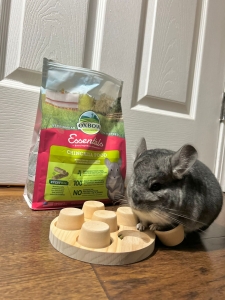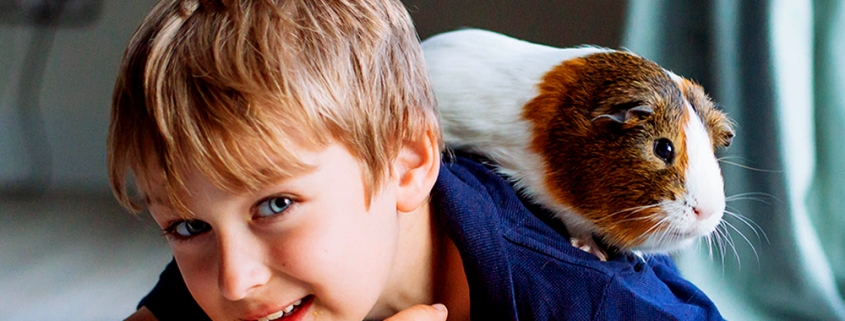Caring for Small Animals | A Guide to Hamsters, Gerbils, and Rabbits
The reason you’re reading this is that you have some interest in the small animal world, whether it pertains to chinchillas, guinea pigs, mice, rats, rabbits, gerbils or hamsters. In this article, you will learn about the nutrition, housing, and health concerns your small pet will need/have. Most small animals share the same nutrition and housing needs, but there are some variations as well.
Recommended Nutrition:
- Hay: Your small pet should have unlimited access to high-fiber hay. Offering hay helps prevent obesity, diarrhea, dental disease, or boredom in our smaller pets. Also, it tends to mimic their natural habitats where they can burrow and nest. There are many kinds of hay to be offered but the most common are alfalfa, oat hay, and western timothy. Alfalfa hay is commonly used in young, pregnant, nursing, or ill pets because it is higher in nutritional elements. Mice, rats, gerbils and hamsters tend to like oat hay better due to the immature seed heads that are very tasty to them.
- Fortified foods (foods that have nutrients added to them): this category pertains to the pellets we generally feed our small pets. Feeding these pellets benefit our pets by giving them the vitamins and minerals they require to stay healthy. Guinea pigs especially need fortified food as they require up to 10-30 mg of Vitamin C per day. Insufficient Vitamin C can lead to scurvy, a disease that affects the organs, bones, and joints. When picking a pellet for your pet, avoid any pellet mixes that include nuts, corn, seeds, and fruit, as it will deter your pet from wanting the healthy pellets instead.

Chinchillas enjoy enrichment toys.
- Greens: Including fresh greens into your pet’s diet increases hydration and also provides a variety of vitamins and minerals. Common greens that can be offered are romaine, bib lettuce, and red leaf lettuce. Mice and rats can have a wider variety including kale, parsley, strawberries, apples (without their seeds), bananas, peas, and squash. The three main greens you should avoid giving your small pet are leeks, chives, and onions.
Treats: Offering your small pet treats will help build a bond between you and your pet, but they should only be offered sparingly. Giving treats frequently can lead to an aversion to their healthier foods.
Housing and Accessories:
- Cages: The type and size of cage you need depend on the type of small animal you have. The most common cages are plastic, wire, and glass with solid bottoms. Chinchillas and guinea pigs prefer to have multi-level cages as they are very active and like their space. However, smaller animals like hamsters and gerbils may also benefit from extra space allowing for greater span for exercise.
- Bedding: The most popular options for bedding are soft, paper-based materials. Avoid cedar and pine shavings as they contain resin and can irritate your pet’s lungs. Also, a blanket or pouch offers your pet a place to burrow and hide.
- Feeding and water bowls: You will need a feeding dish for your pet’s pellets. It is also recommended to have at least 2 fresh, clean water dishes and/or spouts for your pet at all times.
- Toys/Extras: Cardboard tubes, exercise wheels, wood toys, exercise balls, plastic housing, and litter boxes (depending on the animal) are recommended for small animal habitats. Also, chinchillas require dust baths due to the density of their fur and their oily skin.
Health & Behavior:
- You should bring your pet at least once a year to your exotic veterinarian for an annual check-up and discuss diet, behavior, and health.
- Most small animals are very active and require attention for social enrichment. This can be accomplished with toys in the cage and/or a playpen area where you can bring your pet out of its cage for a couple of hours a day.
- Some small animals are also nocturnal and should be handled with care while they are sleeping.
- Certain small animals use vocalization to show emotions which is completely normal.
- If you ever see your small animal eating its own stool, do not be alarmed as this is normal because it contains certain vitamins and minerals.
Reasons to contact your vet: abnormal eating/drinking, sores on feet, overgrown teeth, lethargy, blood in urine, sneezing or trouble breathing, wet or soiled tail (hamsters/gerbils), loose/soft/lack of stool, or bald patches in the fur.
References
Oxbow Animal Health. Oxbow Animal Health, www.oxbowanimalhealth.com/.
Riggs, Natalie. “Do Guinea Pigs Need Vitamin C? #Absolutely, They Do.: Small Pet Select.” Small Pet Select Blogs, 30 Nov. 2019, smallpetselect.com/the-importance-of-vitamin-c-for-guinea-pigs/.



